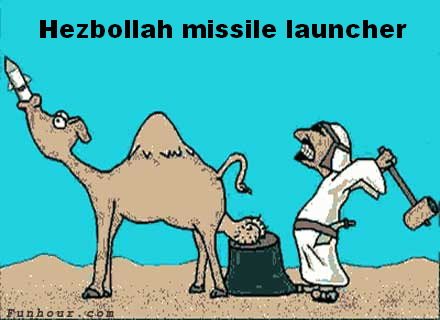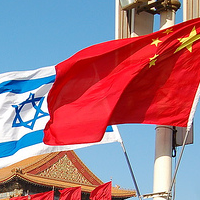Published: April 17, 2010; Syria sends long-range missiles to Hizballah.
by Barry Rubin,
Once again, the Obama Administration has developed a new concept as an excuse for not taking action against a radical and aggressive action. Israel has charged on the basis of intelligence information–and the data in this kind of situation is excellent–that Syria has been shipping long-range missiles to Hizballah in Lebanon which can target Israeli cities. This has led to a raising of tensions and possibly might bring an Israeli air strike against the missiles.
Such an action is a clear violation of the U.S.-sponsored agreement ending the 2006 Israel-Hizballah war which dragged in Lebanon, of course, and resulted in much destruction there. This new development is thus a problem on the following grounds: it strengthens Hizballah, makes a future Hizballah attack on Israel more likely, makes an Israeli preemptive attack more likely, and emboldens Syria to violated agreements knowing the United States won’t do anything.

The old way to launch missiles
This once again shows the trap involved in engaging dictators. No matter what Syria does–sending terrorists to kill Americans in Iraq being one item high on the list, moving closer to Iran, and so on–the U.S. government will turn a blind eye.
So the State Department has invented a new concept. Yes, missiles have been delivered, it explains, but only “in part.” What does this mean? Perhaps the Syrians merely shipped Hizballah equipment or parts to repair and enhance missiles it delivered earlier in violation of the U.S.-sponsored ceasefire agreement. It is possible that it means the Syrians only delivered part of the number of missiles it promised.
What it comes down to is that the Syrians broke the agreement, says the State Department, but they didn’t break it as much as they might have done. (Historical note: I can’t help thinking of the Cuban missile crisis if, in 1962, the Kennedy Administration said that the Soviets had only shipped missiles to Cuba which could target the United States “in part,” so it was ok.)
Bottom line: This is still a violation of the 2006 agreement but it allows the U.S. government to pretend nothing has happened and it need take no action. As I reported earlier, the French were clear on this issue and denounced the Syrian action. [Optional joke–Are the French now saying: The Americans have a cowardly foreign policy AND no good cheese?]

Syria is allowing Hizbullah terrorists to train in Syria with advanced SA2 anti-aircraft missile batteries
The problem here is not so much the specific issue but the basic principle: This administration won’t enforce agreements, it won’t hold radical states accountable for what they do, allies cannot rely on it to stand up for them, enemies know they can get away with a great deal.
Recently, U.S. officials have spoken about how certain situations in the Middle East lead to the death of U.S. soldiers or endanger them. The next time an American is killed or wounded in Iraq, note that they were probably short or blown up by terrorists who were financed, armed, and trained in Syria, giving safe haven in that country and passing through it to launch their murderous attacks.
Syria knows it can continue that activity at no cost, just as it can continue to seize power in Lebanon, back and arm Hamas to make Israel-Palestinian peace impossible, and keep tightening its alliance with Iran.
With each deed of appeasement or closing its eyes to aggression and terrorism, the current U.S. government is complicit in those developments.
About the author:
Barry Rubin is director of the Global Research in International Affairs (GLORIA) Center and editor of the Middle East Review of International Affairs (MERIA) Journal. His latest books are The Israel-Arab Reader (seventh edition), The Long War for Freedom: The Arab Struggle for Democracy in the Middle East (Wiley), and The Truth About Syria (Palgrave-Macmillan). His new edited books include Lebanon: Liberation, Conflict and Crisis; Guide to Islamist Movements; Conflict and Insurgency in the Middle East; and The Muslim Brotherhood.



 RSS
RSS



















Syria sends long-range missiles to Hizballah #lebanon #syria #israel #us http://j.mp/d91bZR
RT @CrethiPlethi: Syria sends long-range missiles to Hizballah #lebanon #syria #israel #us http://j.mp/d91bZR
[…] This post was mentioned on Twitter by Elisabeth, Crethi Plethi. Crethi Plethi said: Syria sends long-range missiles to Hizballah #lebanon #syria #israel #us http://j.mp/d91bZR […]
Here's an illustration of the old way Hezbollah fired Scuds…and now the new way. http://bit.ly/d4hs7h #Syria #Iran #tcot
[…] no secret that the Syrian government is highly involved in supporting terrorist groups such as the Hizballah in Lebanon with money, weapons and material aiming at the destabilization of the region and posing […]
[…] april van dit jaar werd er door Israëlische ambtenaren op gewezen dat de overdracht van SCUD-D raketten aan Hezbollah […]